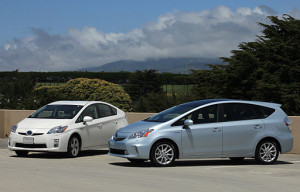 The past few decades have been characterized by major technological advancement. The impact of some of these advancements has been felt in various sectors, including the automobile industry. Earlier on, gasoline-only cars were alone on the roads, but currently more drivers are opting for hybrid cars. The popularity of hybrid cars has also increased with issues such as decreased reserves for fossil fuels and environment concerns coming to light. Automakers are choosing car technologies that are not only fuel economical, but also good in terms of performance. For a many years now, hybrid technology has been promoted and many car manufacturers have embraced the concept. One such company is Toyota, which came up with the Prius. Prius has been a huge success with respect to minimizing environmental pollution.
The past few decades have been characterized by major technological advancement. The impact of some of these advancements has been felt in various sectors, including the automobile industry. Earlier on, gasoline-only cars were alone on the roads, but currently more drivers are opting for hybrid cars. The popularity of hybrid cars has also increased with issues such as decreased reserves for fossil fuels and environment concerns coming to light. Automakers are choosing car technologies that are not only fuel economical, but also good in terms of performance. For a many years now, hybrid technology has been promoted and many car manufacturers have embraced the concept. One such company is Toyota, which came up with the Prius. Prius has been a huge success with respect to minimizing environmental pollution.
Following the success of Prius, other automakers such as Honda are also planning to manufacture hybrid cars. A hybrid car is one that has both electric motors and a gasoline engine. For this reason, a hybrid car has a combination of advantages including enhanced fuel economy and increased power. Simply put, a hybrid car has two major sources of power, the battery and fuel. The high cost of hybrid cars is mainly because they are partially powered by batteries.
Hybrid cars have major components including a generator, electric motor and a battery. All the gasoline car components are also present in a hybrid car. A hybrid car’s electric drive is made up of the three components mentioned above. Some of the major benefits that hybrid technology offers a car include fewer emissions and improved fuel economy. The fuel expenses will go down because the hybrid technology offers a vehicle good mileage. In other words, the electric motor powers the car when the gasoline engine is not in use. The gasoline engine would then save more on the electric charge when the vehicle gets to a speed of approximately 30 mph. In this way, the car’s efficiency is elevated.
With regard to the functionality of the power sources, it is essential to keep in mind that the hybrid concept is based on the principle of energy conservation; energy is neither destroyed nor created but rather converted from one form to another. Therefore, when a car accelerates and brakes, it produces kinetic energy which is then stored in a battery to be used when necessary. When a car accelerates strongly and needs additional power, it obtains it from the electric motor as well as the gasoline engine. Although the gasoline engine in hybrid cars is smaller than that of conventional gasoline powered cars, they offer a huge fuel efficiency boost.